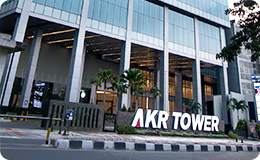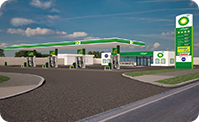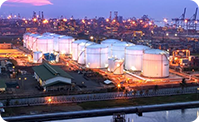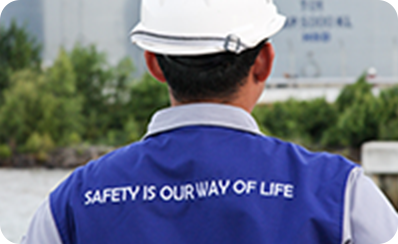AKR understands that reducing Greenhouse Gas (GHG) emissions has now become a serious concern for the global community. GHG emissions is one of the causes of climate change. the Government of the Republic of Indonesia has committed to achieving Net Zero Emissions by 2060, and we are committed to supporting this initiative. To do so, AKR will continue the emission baseline determination process over the upcoming years so it can be used as the basis for compiling the Company’s net-zero strategy.
AKR continues to reduce GHG through its GHG emission reduction policy. The GHG emissions within the Company come from the use of petroleum (BBM) and electricity. The use of petroleum produces direct GHG emissions (scope 1), while the use of electricity produces indirect GHG emissions (scope 2 and 3). Other sources of air emissions in the Company are derived the use of petroleum in operational vehicles, generators, as well as business transportation operations, including delivery by trucks and ships. The method we use is by multiplying the amount of petroleum and electricity used by an Emission Factor (EF), which delivers an emission value equivalent to CO2.
The emission factors AKR uses international emission factors, including the IPCC Guidelines for National Greenhouse Gas Inventories (2006), Biograce, JEC database, and Ecoinvent. The Company has not yet calculated emissions from methane (CH4), nitrous oxide, chlorofluorocarbons (CFCs) and hydro chlorofluorocarbons (HCFCs).
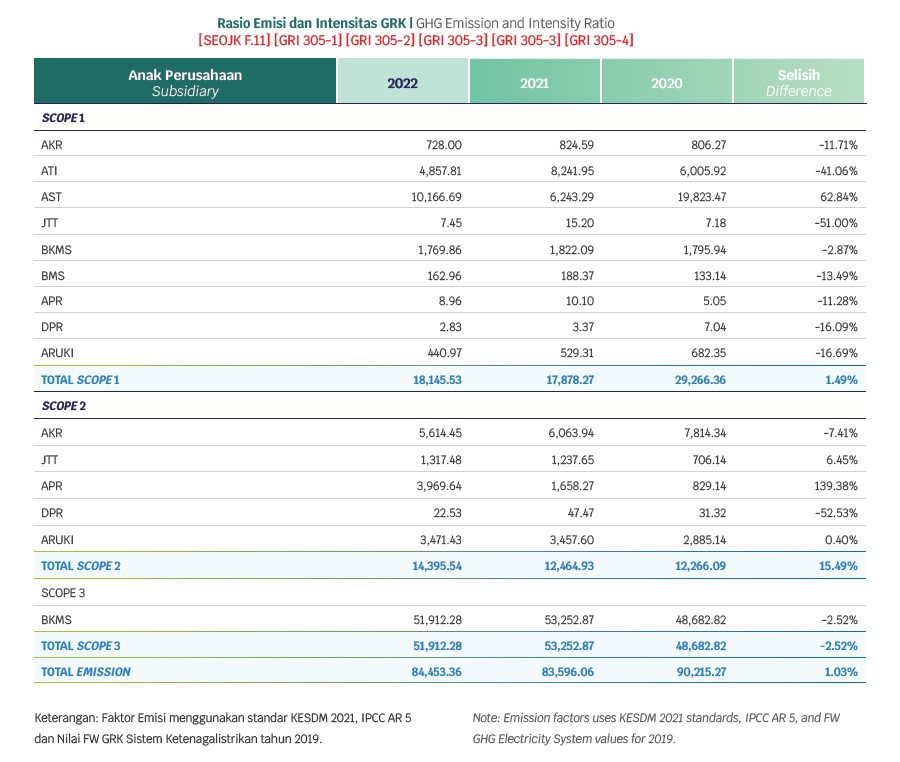

In line with energy intensity, emission intensity also decreased by 45% in 2022 from the previous year’s emission intensity. GHG emissions in scopes 1, 2 and 3 increased from the previous year due to the Company’s operational activities increasing in line with the economic recovery due to the COVID-19 pandemic.
AKR continues to reduce emissions generated through emission reduction management. A number of efforts have been undertaken including the use of IT monitoring to increase fleet utilization, and to determine efficient and effective shipping routes. AKR also continued to provide direction to its employees on how to use energy more wisely, such as through the use of LED lights, installing solar cells, and encouraging them to save electricity and water. JIIPE-BKMS also has another emission reduction program to reduce GHG emissions by using low-carbon technology and building a 0.4 MWp PLTS.
Every year, the Company carries out its fuel and basic chemicals transportation operations using trucks. To reduce transportation emissions, we routinely conduct emission tests, and AKR will only use trucks that have passed the emission test. The Company also operates a transportation fleet that uses biodiesel, as a fuel mandated by the Government on September 1, 2018.

